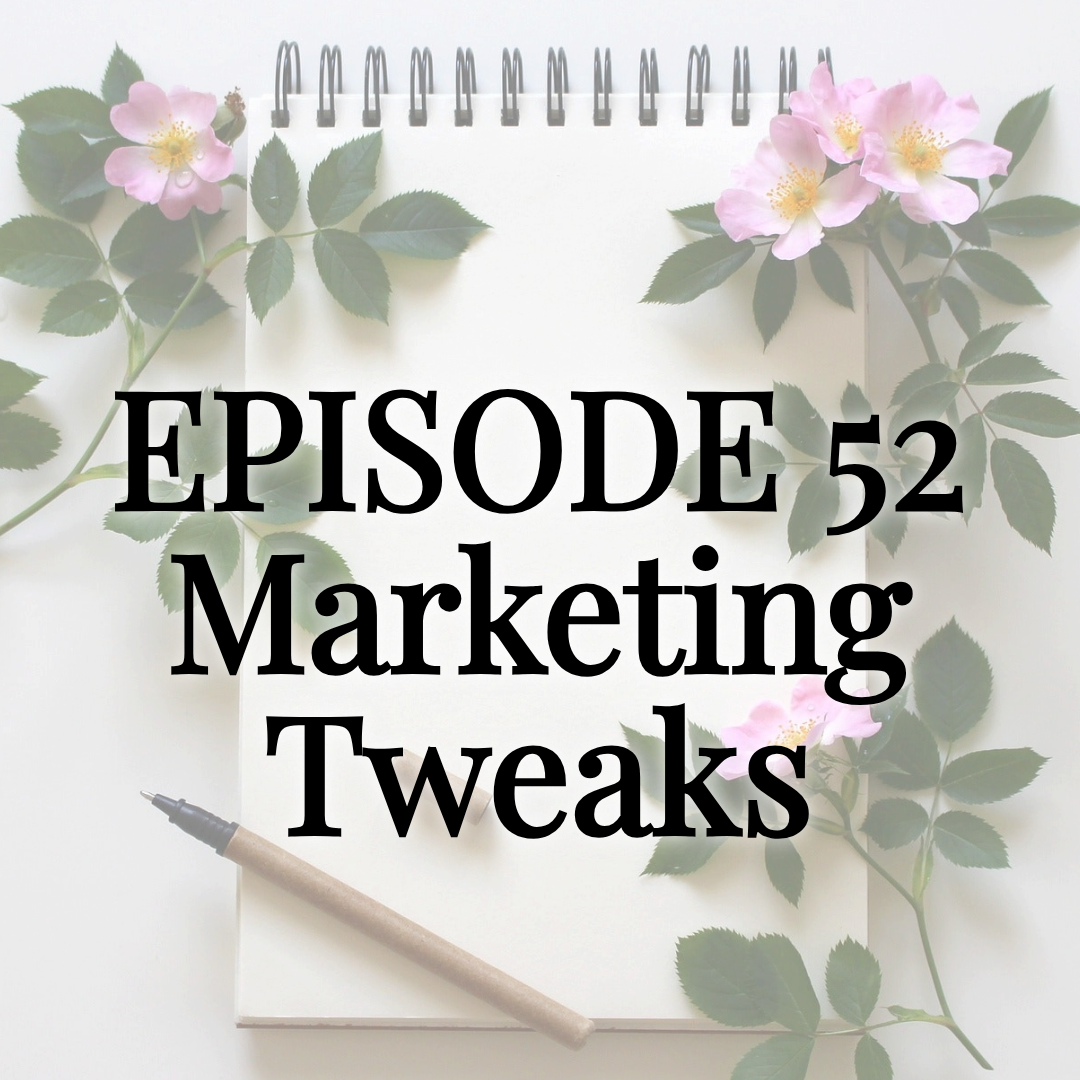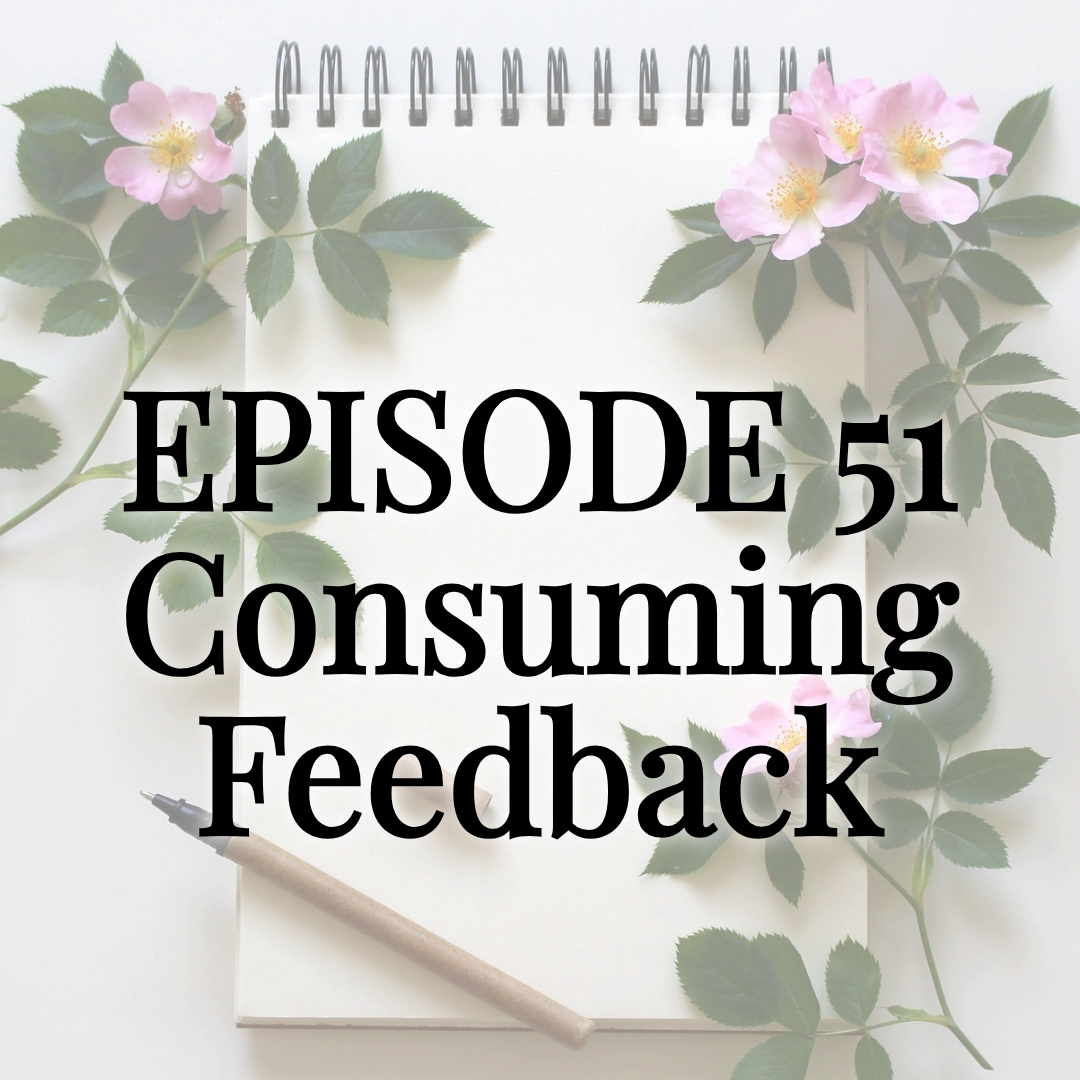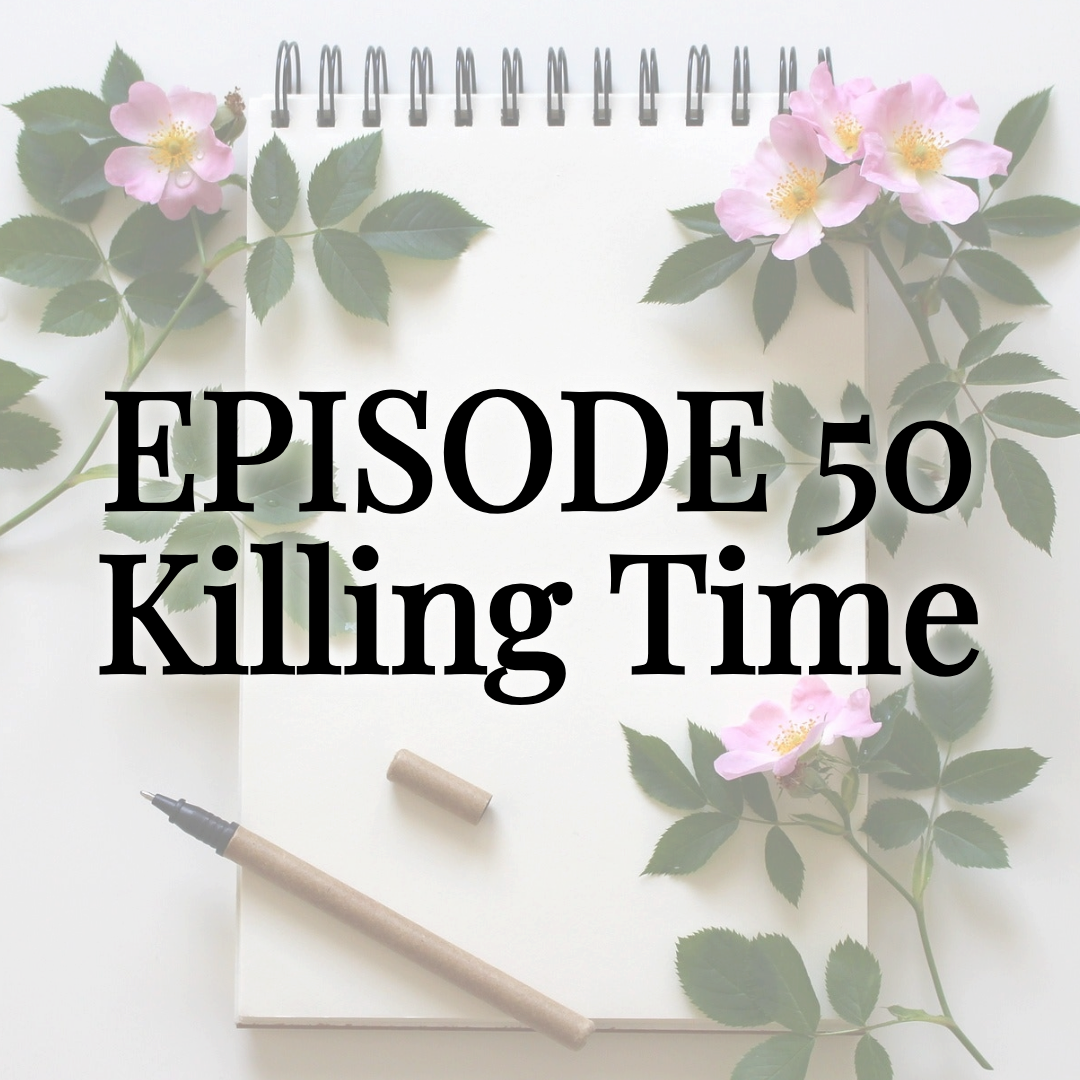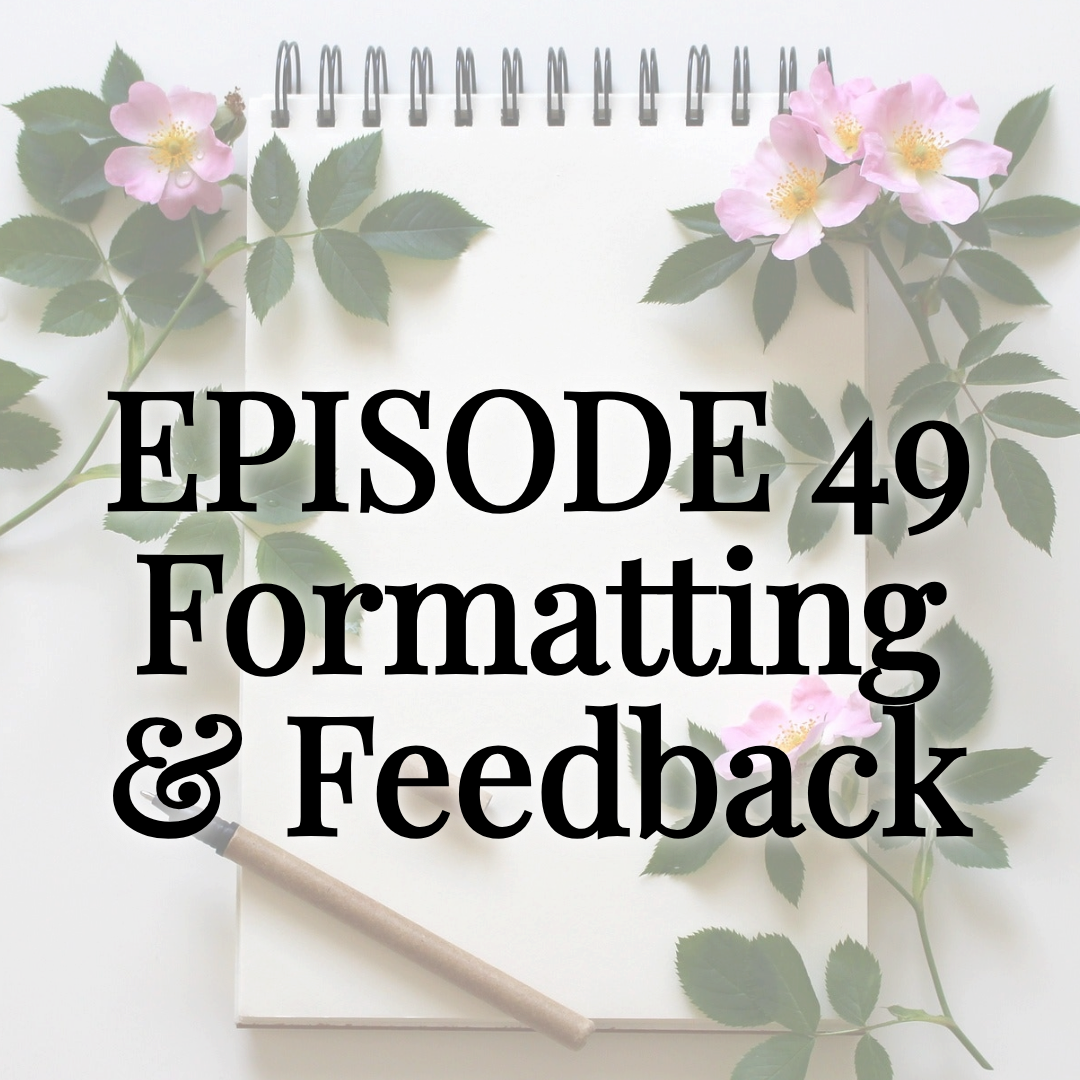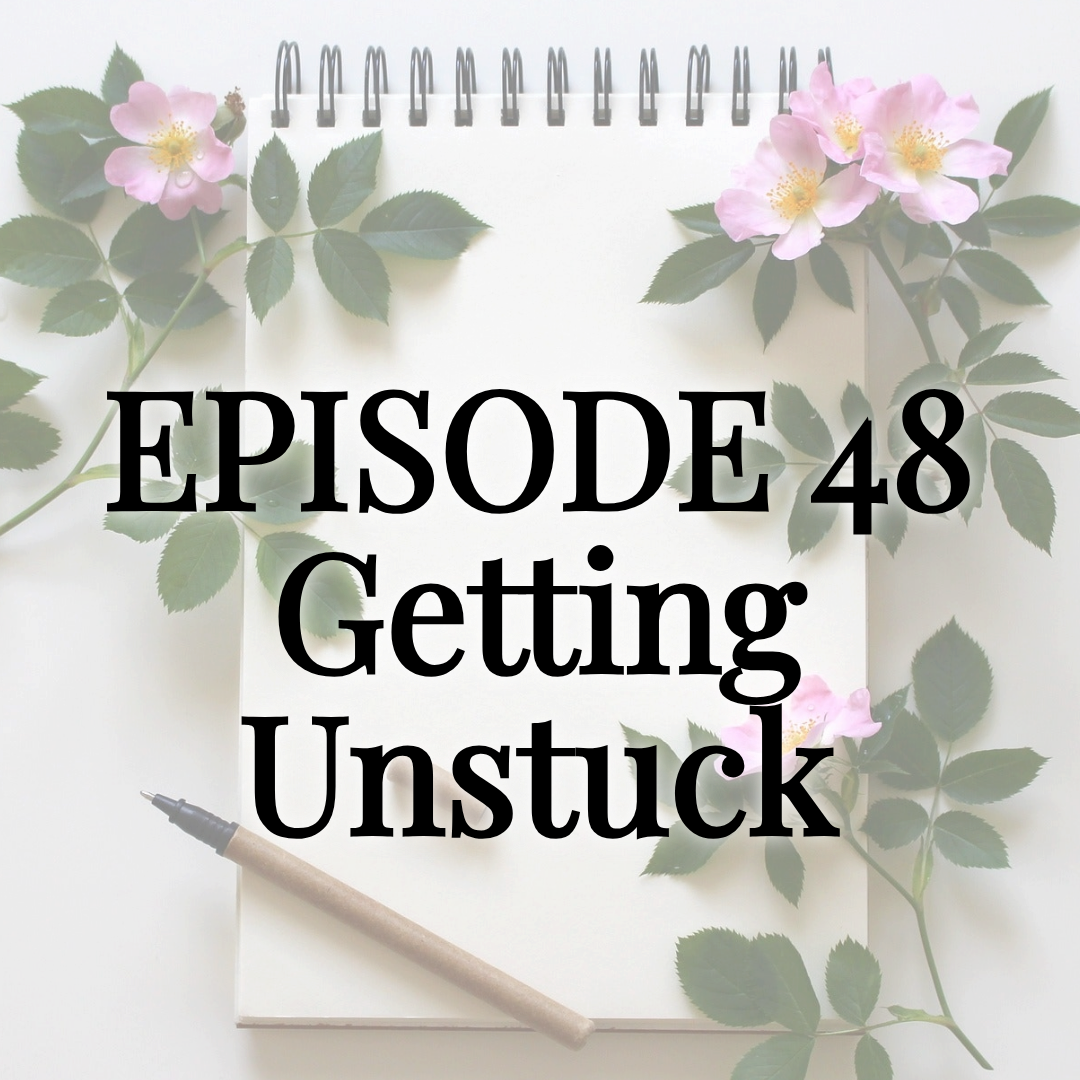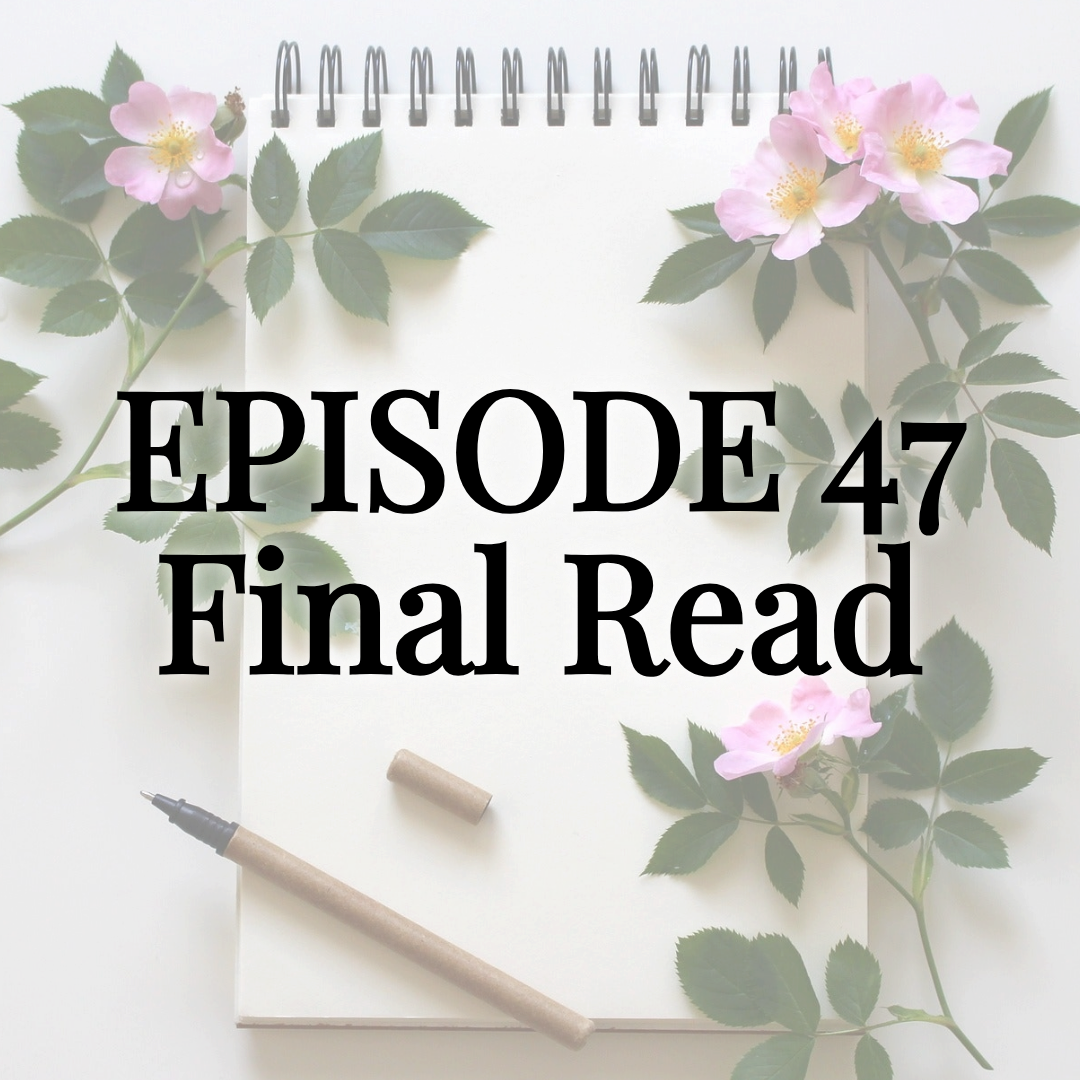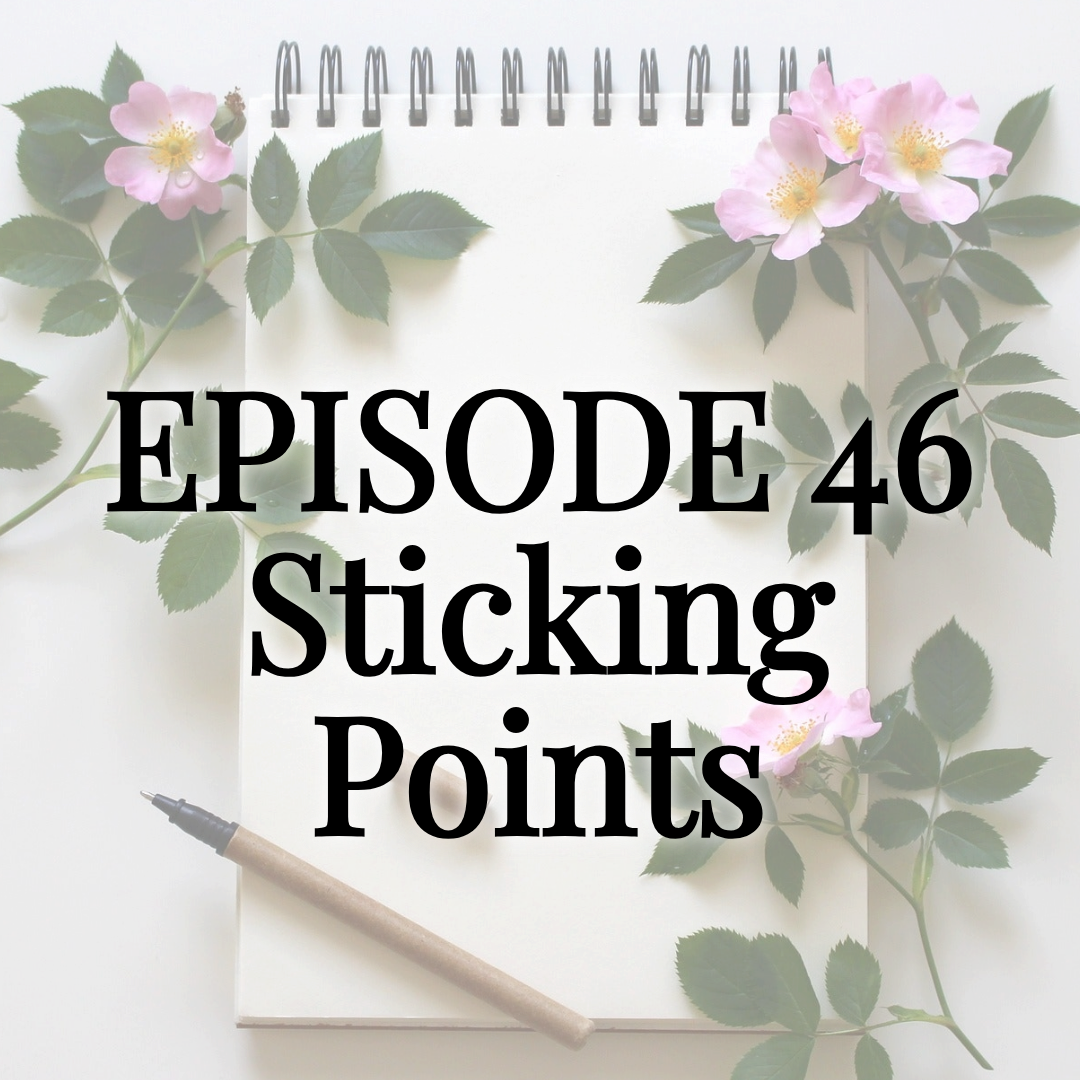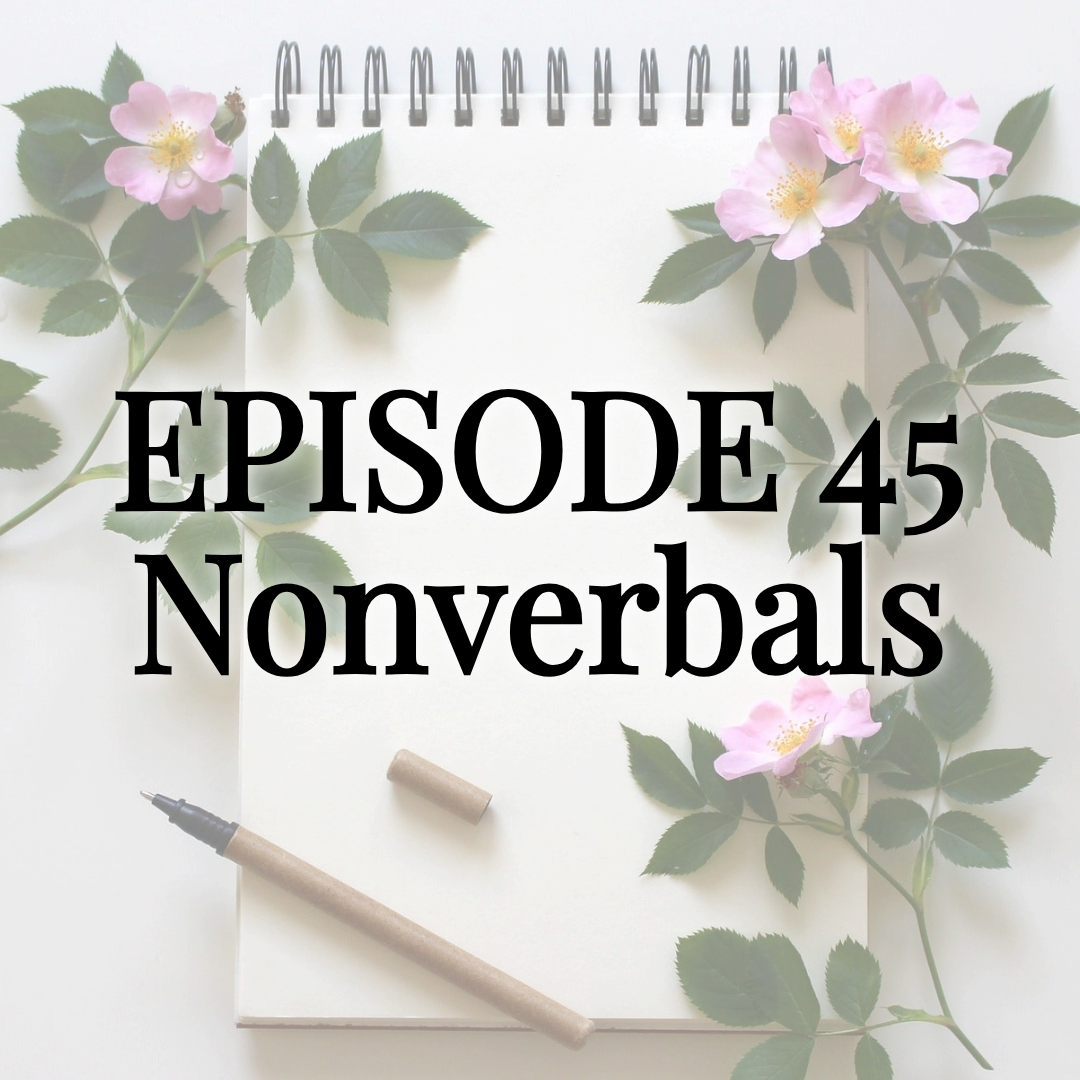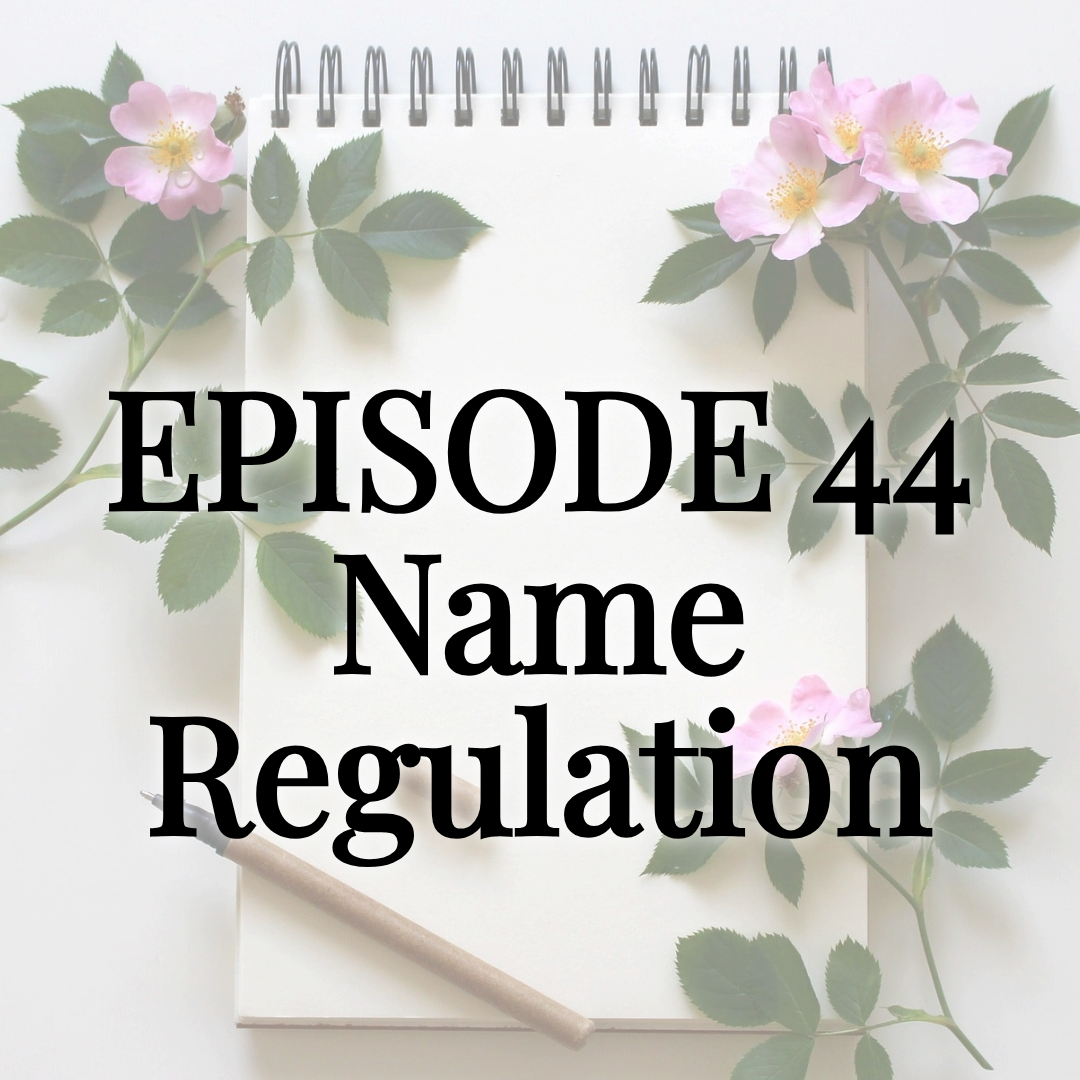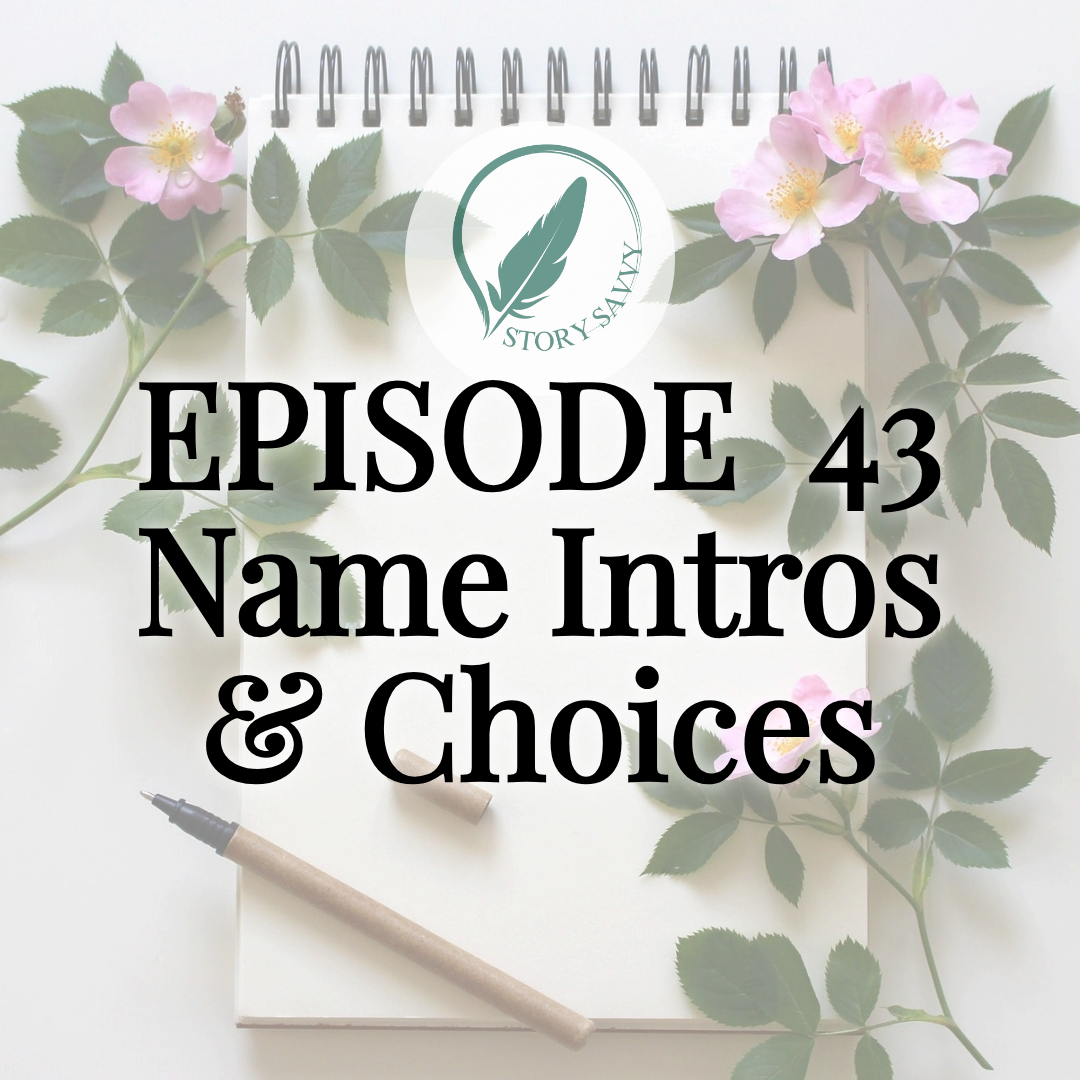Consequences & Processing: Story Savvy Self-Editing Episode 24
Episode 24 Overview:
Consequence & Processing
"Am I doing enough for every big event or revelation to show the external consequences and internal processing around them? Are those aspects, in turn, impacting the plot in a meaningful and grounded way?"
Today in our writing podcast for authors, we explore the overlooked power of consequences and processing in fantasy, and why they’re essential to strong storytelling. Understanding these concepts you will understand better how to add depth to characters and how to process big events in stories.
In episode 24 of the Story Savvy series, we explore how to strengthen your novel’s pivotal moments by showing how characters respond—internally and externally—to the events that shape them. So let’s join together as we unpack how to turn your “big moments” into lasting change.
Developmental editor Rebecca Hartwell and fantasy author Agnes Wolfe explore how to blend cause and effect with character introspection in a way that deepens your story without slowing your pacing. This week in the 52-Week Story Savvy self-editing series, they break down how to spot weak plot moments and fix them with intentional reactions, turning points, and layered emotion.
They also cover:
- What counts as a “big event” in fiction
- How to know if your scenes need more consequences
- When delayed consequences or processing work (and when they flop)
- Why emotional weight must feel proportional
- How to tell if your story’s moments actually matter
- The difference between internal and external fallout in plot
Recommended Resources:
Authors’ Alcove Membership Community – [http://authorsalcove.com]
Book Giveaway – [http://authorsalcove.org]
See you next week for episode 25: Sub Plots and Plot Threads!
Episode 24 Transcript:
Consequences & Processing
Rebecca Hartwell: Hello and welcome to the Hart Bound Editing Podcast. This is episode 24 of the Story Savvy series, where we tackle the 52 biggest self-editing topics and tips to help you make your good story great as an aspiring author asks me, a developmental editor, all of the questions that you have wanted to.
We have covered a bunch in this series so far, including last week's episode on plot twists, and today we are going to take a look at consequences and processing for our characters and plots, making sure that these aspects are working well in our self-editing.
By the end of this episode, the hope is that everyone will feel confident in recognizing, checking, and fine-tuning the consequences and processing for the big moments in their manuscripts. Joining me today to ask all of the questions is my friend and co-host, Agnes Wolfe. Hello!
Agnes Wolfe: Hi, so I am an aspiring fantasy author who hopes to release her first middle grade fantasy next year, and I'm also the host and founder of Authors Alcove. I'm here today to tackle this topic, making sure that these aspects are working well in self-editing.
So, I just want to ask, are consequences and processing something we are checking in every scene? Well, first off, I always think it's a good idea just to say what exactly we are talking about as far as definitions of consequences and processing, what you're actually talking about. But then, I also want to know if we are checking in every single scene for the purposes of this self-editing series.
Rebecca: Sure, so consequences, definitionally, are events down the chain of cause and effect from a previous event. So a consequence of, let's say, deciding to do laundry is that you have clean clothes. And a consequence of deciding to fake your own death and move to a different country is that you have to, you know, stay under the radar and make all of these other decisions and take all of these other precautions because you made that one decision up the chain. So, consequences are anything that happens, or that you are forced to do, or affects to your decision making caused by whatever event you are looking at the consequences from.
Processing is the internal version of consequences, essentially. It is the human experience and event of trying to make sense of the world, and to pick apart and understand why something happened. Or to understand what happened and how you can move forward from that. So, consequences, for the purposes of this episode, are the externals after a big event, and processing is internals after a big event.
So, to answer your question specifically, you can check this at every scene or chapter level in your book if you want to, and especially if you've really put a lot of work into making sure that each scene and chapter has a core event that really changes something. But I'm primarily recommending that folks check this in their self-editing just for the big moments. So the, let's say, three to ten however big moments you feel like you have in your book that you would consider a turning point for the plot or for the protagonist. Those are the moments that we're really talking about checking here.
Agnes: So, do you mind just defining exactly what counts as a big event that needs to have both the external consequences and the internal processing checked around it?
Rebecca: Sure. So, we have touched on big moments in a bunch of previous episodes. We've talked about the midpoint and the climax and the crisis, and last week we talked about big plot twists. All of those are going to be big moments, and one of the easiest ways to check where the big moments are in your story is to go back to, I think it was episode 18, where we were talking about intensity and look at whatever graph you can make for yourself. If you're using numbers, if you're using a bar chart, it doesn't matter. Wherever there's a peak or a significant valley is probably a big moment in your story.
So, a big moment can be defined by the emotions that come up. Very, very good emotions, so joy, success, anything like that. Or really negative ones, so grief or loss, anything like that. If there's a big emotion, it's likely a big moment. And then externally I would define a big moment as a place where the plot is significantly advanced. So, a big jump towards a goal, or towards the climax event is taken, or where the plot is forced to take a very different direction. So, where that plot is forced to turn, which would often be a plot twist like we talked about last week.
Agnes: So, this is kind of a weird question to ask, but so like when we're looking at our big events, what if it doesn't actually impact the plot? Should we think about revising it? Should we think about deleting it? Should it stay? How should that impact our self-editing when we recognize, that like, our big event doesn't actually impact the plot?
Rebecca: So straight off the bat, that is a problem that needs to be addressed, and you can pretty much go one of two ways. You can remove it so that you aren't wasting the time and energy, or you can go in and make it matter.
If this was in a book of my own—and I have done this, I've found a big moment in my own work that didn't change anything, didn't affect anything—what I chose to do there was use consequences and processing to make it matter. I did not have to change the overall arc of the story. I didn't have to change the climax or how I would link into the next book in the series, anything like that. All I really had to do to make this matter was: I took that big moment and I wrote out a list of all of the ways that it could have had a big impact but didn't. And then I picked one or two favorites and over the next, I think it was four or five scenes, I had a tail end of those consequences. And it did mean I had to rewrite one of the scenes and I had to significantly tweak two others, but by making it matter through processing and consequences, I was able to keep in this scene that I really liked because of just what I got to do in it, and I thought it was cool.
So yeah, consequences and processing is how you can make a big moment that doesn't actually affect the story earn its place in the manuscript.
Agnes: I really like that, and I think that goes back to something we often talk about, which is that when we are self-editing, our changes don’t actually have to be huge. I think as a—so I’m a beta reader, and I have interviewed a lot pf people who have had problems with beta readers. And I often want to tell them that, you know, when they have a problem with what their beta reader is saying, what that means is that you probably just need to adjust things slightly, and I’ll bet you the beta reader would have appreciated that exact same thing that you are in love with but they didn’t like. And I think that’s kind of what you’re getting at. Like, you had to change just five or—
Rebecca: Yeah. The changes that are needed are often smaller than you think when you first read the feedback because I understand that is always a difficult process. And also, I think it’s a Shephen King quote, something along the lines of: “A reader is almost always correct when something isn’t right, but almost always wrong about why.” So, if you get feedback of “Oh this scene sucked,” okay, there is definitely something there worth fixing up. But it’s probably not that the whole scene sucked. It’s probably that there was one sentence, or maybe a paragraph, where the protagonist’s reaction was really off, or you have a plot hole about cause-and-effect. So, always take it seriously when a feedback reader says, “There’s something wrong here,” but feel free to come with your explanations for why, and do that digging, which is what this self-editing is all about. It’s trying to give you the tools to interpret feedback and find what’s actually not working if you don’t think it’s what they said.
Agnes: Okay, now, plug your ears, I’m telling out audience this. Also, if your developmental editor tells you something’s wrong, and then you recognize that they’re probably wrong on why, then listen to her advice right now. Because there have been a few times where I’m listening and, like, she will give me her reason why and I will be like, “Actually, I think she’s wrong, but she’s right I need to change it.” And one of them—like one of them—we talked about this on one of our episodes, anyway, you told me that I had to many characters. And I was looking at all these stories that I love and they have tons of characters. But I realized that I do actually have some characters that could be combined into one. So, I probably will still have a big cast, but you were right that I did have some characters that…
Rebecca: And there was another topic in your work that we edited together where I thought that the issue what that you were intentionally withholding information from your reader to try to create this sense of mystery, and I was wrong! You let me know afterwords, like “No, I just forgot to mention those things—”
Agnes: “Oh that was just bad writing.
Rebecca: —that’s great. My job is to find where something isn’t working quite right, and try to figure out why, and offer suggestions on how it might be fixed. But if I am wrong, I love that, because that means that the writer that I am working with has the confidence, and the self-awareness, and the wherewithal to look at this and o, “I know that something is wrong, but I don’t think they are right about why. Here’s how I’m going to change it instead.” And that is beautiful. I love that for the writers that I work with.
Agnes: Alright, so, going back to your questions—our questions: why does showing appropriate consequences after these events matter? So like, how can we define what’s appropriate to make sure we’re hitting that, and what are the cons if we don’t?
Rebecca: Sure. The goal with providing adequate but not surplus consequences and processing is to prove that something mattered. And I feel like this comes up in at least half of the episodes in this series, of, “it’s working if it matters. If it impacts the plot if things are changed from there on.” How you prove that that is the case to your reader is through consequences and processing. If you have a big moment, let’s say the village is attacked and the two protagonists flee and get away safely, if they then immediately go back to the village and it’s fine, and they don’t have any emotional reaction to that, that didn’t matter. So, the point of consequences and processing, and showing them, is to prove that it mattered. And then on the other end of that, of making sure that you don’t have too many, or too much, consequences and processing, is simply to allow the story to continue moving forward. Because while consequences and processing are necessary, they aren’t actually interesting to read, in themselves. So you don’t want to have three scenes of consequences and processing without their own big events here and there. “Big,” being relative on the scene level. So, yeah. You’re going to get your readers bored, essentially.
So, defining what’s appropriate, and if you’re hitting the right spectrum: I suggest ranking your bigness of your moments first to a universal understanding. So, I think everyone on the planet would agree that a big moment of a tsunami wiping out an entire island is way bigger than a big moment of getting dumped by your boyfriend. So, ranking them on that scale can help you understand, “alright, consequences and processing”—I know, we’ve all been there, we’ve all felt very big in small moments. But having an understanding that you need to have a more proportional amount of consequences and processing for a tsunami, than you do for a breakup, can help you gauge how much you should be including.
And then, beyond that, gauge it just for your story. So, within your individual book that you have written and you are now editing, what’s the biggest moment? Okay, that should have the most consequences and processing. What’s the smallest “big” moment? So, the lowest stakes things that you are still defining as a “big” moment for your story? That should have the least. And this can be a craft thing. If you are naturally skilled at delivering concise consequences or processing, you can do this in a paragraph. Or if you are writing the kind of story that expects more consequences and processing it’s fine to do an entire scene or two for that. So it’s one where really kind of have to make your own call. But go through and sit with each big moment, and each set of consequences or processing for it and ask yourself; “Is this proportional? Is this balanced? And am I going deliver believability balanced against boredom?”
Agnes: I think also knowing your audience is a huge part of that. Because what’s going to seem big to a certain audience is going to seem small to another audience. And so the consequences probably do need to be bigger for the breakup in a middle-grade novel than it does in may an adult novel where the person is going to find a new love, like, later on. And I so I think knowing your audience and knowing, like, how big are they to see this is probably a good thing to keep in mind.
Rebecca: Absolutely.
Agnes: So, what’s a good indication that we need to add more external consequences to a scene? Because as I’ve talked about many times, is that we are in love with our stories, and sometimes we have to hear it from other people, but it’s good for us to do the self-editing before anybody’s ever looked at it. So how can we look at it and be like, “Okay, I need to add more external consequences in this scene, or big event.”
Rebecca: I would say: look at the very next choice that your protagonist makes after a big event. If that next choice—so that might be “Oh, I’m going to o hang out with this particular friend,” or “I’m going to keep traveling down this road towards this destination,” or “I’m choosing to, you know, dress up really fancy and go to this party.” Whatever their next choice is, gauge how much that choice was impacted by the big event that immediately preceded it. If the answer is ”zero” you probably need to adjust that. So, look at how much that event is impacting things. And again, gauge whether or not it’s appropriate for how big you wanted that event to come across. If you want to include a bi event that has minimal consequences, that’s a choice that you can make. Just be intentional with it and check to see, measurably, how many future events does it impact? How many choices made by the protagonist does it impact in the immediate aftermath? These are the litmus tests for how much external consequences you have, and again, that gut-check is really the only measure—at this stage, obviously external feedback can be very, very helpful with this particular topic—for whether or not you have the right amount. I hope that’s helpful.
Agnes: Yeah, definitely. And I think also it’s good that we’re talking about both the external consequences and the internal processing because, you know, I’m going back to like that breakup thing. Realistically if I was saying, consequences, but I think what I was really saying was internal processing. Like, the internal processing was probably going to be huge for middle-grade, but the consequences probably are going to be very, very small. And I think that’s good differentiation to write as an adult writing to middle grade, is like, showing, you know, like, it’ll feels like it’s a big deal.
Rebecca: And the same event in different stories can have different impact. If you have, you know, your first love breakup in YA, that’s going to be huge internal processing, but probably really minimal consequences. However, if you are writing, let’s say, a historical fiction political thriller, then if you have a king and queen who hate each other, and she decides to finally leave him, that’s going to be huge consequences, but probably almost zero processing because she’s been done with him for decades.
So, yeah. This is why we’re talking about both separately. Because they can have two very different levels and appropriateness depending on the exact story, genre, audience, situation, protagonist, personality, all of those different aspects.
Agnes: So, back to our questions, apart from spotting the mistakes themselves, like we were just talking about, what type of external consequences are we hoping to see to know that we did a big event effectively? And I guess that can also be like the internal processing, I’m not sure.
Rebecca: Yeah. I would look at, again, making sure that it affects the next couple of choices—or noticeable choices—that the protagonist makes. If it does, then you're probably doing that well. If your big event creates big emotions in your protagonist, you're probably doing it well. If it takes them a half a scene, or a full scene or whatever, to get back to an emotional baseline—where they aren't actively excited and amped up, or they aren't actively scared and shutting down, whatever the case is—then you're probably doing it effectively.
Uh, let's see—if the big moment takes some build-up or set-up in some way, however subtly, there's a better chance that it's going to pay off. And we've talked about this a lot with deus ex machina, foreshadowing, and all of these kinds of things.
So specifically around what consequences you want to see—or are hoping to see to know that the big event was used effectively—it depends so heavily on the genre, and what that big event was, and what message you're trying to tell with your story, and how that event impacted your protagonist, that I don't have a blanket answer here. But just give it thought. When you're going through your list of big events, just take a moment and go: “Okay, if this happened in a book series that I love, what would I expect the consequences and reaction/processing to be? If this event happened in my individual real life, what would I expect the consequences and processing to be? If this happened in real life to someone I know who's very much like my protagonist, what would I expect the consequences and processing to be?” And you don't have to be true to any of those, but thinking about them can help you gauge where you want your story to fall in relation to those examples that you can kind of put yourself in their shoes for.
Agnes: You know, I like that you brought up, um, real-life events, because one of the things that I often think about—or what I was just thinking about—is how, um, in real life, consequences can be delayed. Like, we are not completely aware of them. So, what if the consequences are just delayed, and neither the reader nor the protagonist know what those consequences are until much later, or even later in the series? Is that okay in writing, just like it happens in real life? Or is that something that you would shy against?
Rebecca: So, you absolutely can do that, but it can be tricky to handle well. If you have heavily delayed consequences, it can make that big moment feel like it wasn't a big moment. So just be aware of that—that it might only be perceived by your readers as big in retrospect. One of the considerations there is, if you want your reactions or your consequences or processing to be delayed, your protagonist needs to be unaware of what the implications of the big event were. You can't delay the outcome for your readers without also delaying it for your protagonist. So, if you want to do that, just make sure that your protagonist is unaware of what these consequences are going to be, and unaware that they are going to have to process this later.
One other consideration here is: if you still want it to feel like a big moment, but you want to delay a particular aspect of the consequences or processing, I suggest giving it a sub-layer of consequences and processing that can still happen in that moment or immediately after. So, then you have a big moment, and you have the protagonist thinking that they have dealt with the consequences and processing—and then they go along their story—and then later, a previously unrecognized element of that big event is going to hit them in a much bigger way. And that can be incredibly powerful storytelling.
Agnes: So also, what are some good indications that we need to add more emotional weight and processing to a scene? Or vice versa?
Rebecca: I've definitely touched on this idea before—of making sure that your character's reactions are proportionate to whatever external thing is happening. If they don't react enough—if you don't show enough of that emotional weight and processing—your protagonist, or any other characters, can feel numb and like they aren't paying attention to what's happening. Which is going to distance readers. That's not what you want. You want them invested.
On the other side of that, if you show too much reaction or processing or emotional weight, it can make your protagonist, or any other characters, feel crazy or wildly overemotional or immature. There's a whole host of different ways that it can come across.
So again, I recommend gauging the “right amount” on your personal real lived experiences, observed reactions from people that you know who maybe have a similar emotional landscape to your protagonist, and from the other books in your genre that you've read. If you have an author that you think does emotions and character arcs and all of this really, really well in a similar genre to you, think about how they would handle it. If you were reading a new book of theirs that was essentially this plot and this moment with this protagonist, how would you expect them to be shown reacting? You don't have to match any of those. But again, having some instinctual idea of what the realistic—but not overblown—spectrum for how much processing and weight you give the emotions after a big moment, or in a big moment, can be very helpful in helping you decide if you are in that spectrum.
And to be clear, if you have a generally sort of, you know, serious, not-emotional character, it's fine to be on the very bottom end of that spectrum, but it still needs to be in the spectrum.
And on the other side, if you have a very emotional, passionate, feels-everything-intensely kind of character, it's fine to have them pushing the upper limits of that reaction, but it still needs to be in the spectrum.
Agnes: So that was kind of what my next question was going to be about—like, how do you know we got the editing right as far as the right amount of internal processing? And I like how you just kind of talked about how we compare it to real life examples. And I know, like in real life, sometimes after a big external event, we often struggle to process it right away. Is it okay—you know, kind of like, is it okay to have the external consequences delayed—is it okay to have the internal processing delayed in our big event?
Rebecca: Yeah. I think that how to best handle that depends a bit on your narrative style choices, which we did an episode on earlier in this series. If you have a very distant POV—so let's say omniscient—and you're never in your protagonist's embodied emotions, you're never in their internal thoughts, you can get away with this a lot more easily. You simply don’t mention it, and you maybe show very, very subtle changes in their behavior or decision-making process.
If you are in deep POV or close POV, which a lot of the work that I read, and edit, and write is, I think that you still need to do something. So, you need to show that they are repressing their emotions. You need to show them feeling an emotion and pushing it down. You need to show them starting to process and redirecting their thoughts or their attention. Because in the external consequences, the world, the arena, is in charge of that delay. When you're talking about the internal emotional processing, the only person in charge of that is your protagonist and/or their subconscious. So maybe you have a protagonist who has been conditioned their whole life to repress their emotions and not process things well. That’s fine. That is a great, valid, depth-adding character choice to make. However, you need to approach this intentionally. And you need to really—I don’t want to say “tell,” I don’t want to say “explain,” because “show, don’t tell” very much applies here—but you need to demonstrate in some way that the delayed process is because of their personality. Or because of the way that their brain works, or because of their emotional conditioning. That’s the main difference there: if you want to delay it, you need to give more reasons. And ideally, subtly, and not just telling the reader.
Agnes: And I think that can result in a character seeming very flat if you're not letting them know, “okay, this person has delayed emotional processing”—because then they’re going to be like, “This person is just… there.
Rebecca: “Did they not notice what just happened? What's going on?”
Agnes: Yeah. We do need to wrap up. Um, I do have one last question, and the question is: so we know that there should be processing and consequences for everything—but do we need to have both an external consequence and internal processing for every big event?
Rebecca: It depends on what aspect the big event impacts. So, if the big event really only impacts the world and the plot or the arena—the physical space the story is playing out in—then it's fine to almost exclusively have external consequences.
If the big moment is, let's say, a moment of cognitive dissonance for your character where they finally realize that something they were holding a belief in isn't true, it is fine if all of your emphasis is on the internal processing.
So, it’s okay to have one or the other, but it really needs to match the nature of the big event.
If you have a big event that impacts both, you kind of need to have both consequences and processing following after it. So, it very much depends on the nature of the event and what kind of story you're telling. If you're telling an action-adventure, a lot more emphasis is going to be put on the external consequences. If you're telling a maturation, disillusionment plot, a lot more emphasis is going to be on the internal processing. So, it’s a good thing to think about, but you as an individual, every listener as an individual, needs to make that call for them and their individual story.
Agnes: Thank you so much for everything that you shared. I have been really enjoying this series, and I feel like the last two episodes that we have done have really been applicable to what I'm editing right at this moment. Anyway, thank you so much.
Rebecca: Absolutely. I very much enjoy this series as well. And it is genuinely so valuable to have an author who's going through this process be half of this conversation. Because it is a very different place to be in when you are going through the process and getting this advice from an external source than I could ever provide on my own. So, I very much appreciate you being here as well.
Next week, we are going to dedicate a whole episode to just checking and integrating our subplots and plot threads into a more cohesive, woven-together whole.
For right now, I really want to thank everyone who is following along with this series. We would really appreciate it if you could help us out by liking and subscribing to the Hart Bound Editing Podcast and the Authors Alcove Podcast, where you can find lots more content for fantasy authors and readers beyond this joint series. I look forward to next week.
Agnes: Can't wait to chat with you then. See you then.
Rebecca: Thank you so much for listening to the Hart Bound Editing Podcast. I look forward to bringing you more content to help you make your good story great so it can change lives and change your world. Follow along to hear more or visit my website—linked in the description—to learn how I can help you and your story to flourish.
See you next time!

